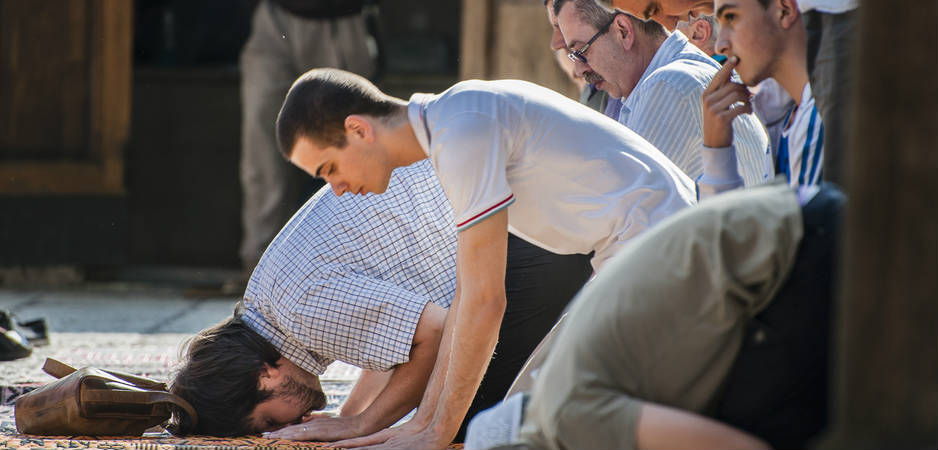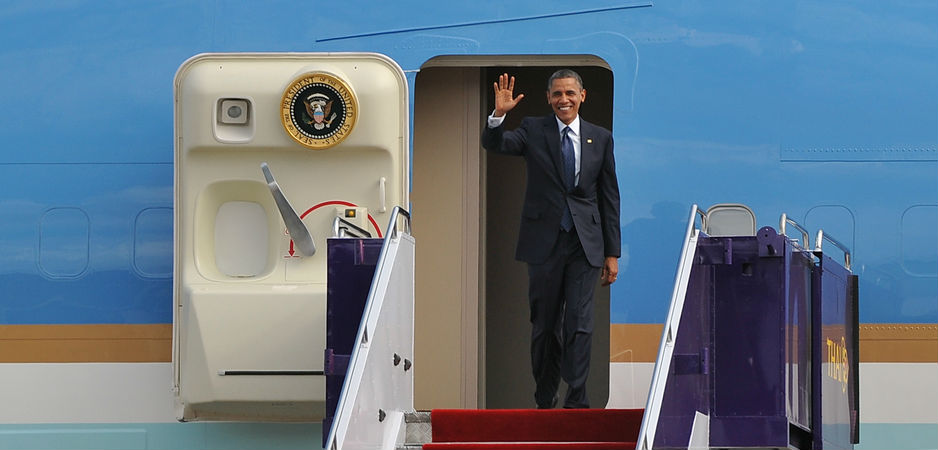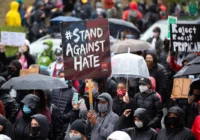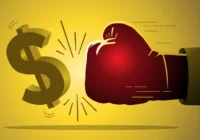Founder & Editor-in-Chief Atul Singh provides a roundup of the week’s events.
The bigwigs at the European Central Bank (ECB) have decided to emulate the US Federal Reserve. The ECB will begin quantitative easing (QE) by buying both government and private bonds. In doing so, it might create over a trillion euros of new money. By increasing the supply of euros, the ECB will cause devaluation. A cheaper euro is expected to help eurozone exporters, increasing employment and confidence. Increased money supply will also cause a fall in interest rates. This might boost spending and stimulate the economy.
Fear of deflation has caused the ECB to start QE. Recently, the world economy has been benefitting from cheap oil. Olivier Blanchard, the chief economist of the International Monetary Fund (IMF), called it “a gift of God.” Yet the eurozone remains moribund. Quantitative easing has left Europe deeply divided. Germany still remembers the hyperinflation of the Weimar Republic and opposes QE. German Chancellor Angela Merkel wants reforms to boost competitiveness instead. However, other European leaders are terrified of anemic growth, high unemployment, chronic lack of demand and the rise of the far-right.
The euro was supposed to bring a once war-ravaged continent together. Now the eurozone faces the risk of a messy divorce. The leader of the Greek anti-austerity party is promising an end to “national humiliation” and wants to renegotiate Greece’s debt. He might be elected to office soon. If Greece defaults and exits the euro, markets might panic. This might lead to contagion. Should that happen, Portugal, Spain and Italy might leave the euro too. Worse, it might be impossible to paper over the cracks of an increasingly obvious Franco-German conflict over the direction of the eurozone economy. The French want to borrow and spend. Germans prize prudence. The battle lines couldn’t be sharper.
QE has critics other than Merkel. George Soros, the legendary investor who forced the devaluation of the pound in 1992, has warned that the ECB’s QE will “reinforce inequality.” Soros has raised an issue that is not discussed honestly. The fear of deflation is prompting central banks to print money. However, this is leading to increased asset prices. Those with assets are getting wealthier, exacerbating inequality. It is little surprise that even The Economist, a patrician newspaper of 1843 vintage, has a story about inequality on its cover this week. It ignores the role of central banks in furthering inequality, which is increasingly becoming the burning question of our era.
Economic woes are plaguing Asia and Latin America as well. The Korean economy grew by a measly 0.4% last quarter. China’s manufacturing sector contracted for the second consecutive month. The Chinese economy grew by 7.4% in 2014, the lowest figure in 24 years. As Chinese demand falls, economies of Latin America that export soybeans, copper, beef et al to the Middle Kingdom are not doing too well either. Turbulence lies ahead in 2015, and it is time for everyone to fasten seatbelts.
Saudi King Abdullah bin Abdulaziz has died at the ripe old age of 90. Salman, Abdullah’s half-brother, has taken over a kingdom that exports oil, buys dollars and promotes Wahhabi Islam, a puritanical intolerant creed. To its south, the US-backed government in Yemen has just collapsed and, to its north, the Islamic State is growing in power. The Saudis are caught in a bind. Mild reforms have been accompanied with repression. Raif Badawi, a liberal blogger calling for greater liberty in politics and religion, will spend ten years in jail and be flogged a thousand times. The lashings will be dosed out at 50 per week, and Badawi can feel lucky that he was not executed for apostasy. So far, the House of Saud has managed to keep control but rockier days lie ahead.
Protests against blasphemous Charlie Hebdo cartoons of Prophet Muhammad continued in many Muslim countries such as Pakistan and Algeria. In Chechnya, 800,000 people protested in Grozny. In Niger, 43 churches were burnt. Clearly, protesters either see the cartoonists as Christian or Christianity as Western. In a Sydney protest, one speaker slammed “the arrogant West” and declared that freedom did not include insulting the prophet.
Thailand is in turmoil. In 2014, the military conducted a coup against then-Prime Minister Yingluck Shinawatra. It appointed new members to the National Legislative Assembly (NLA). This week, the NLA, a rubber stamp body, voted to impeach Yingluck and ban her from politics for five years. This is madness. First, Yingluck is not in office and, therefore, cannot be impeached. Second, a military-appointed body has no power to impeach a democratically elected leader. Naturally, protests have broken out in the strongholds of the Shinawatra clan. With democratic avenues unavailable, some protesters might take to the gun and start demanding independence.
While much of the world has struggled, the United States has enjoyed a good week. The economy is gaining strength. Job numbers are getting better. Talks with Cuba ended “positively.” President Barack Obama has given a feisty State of the Union address, promising to fight inequality. Negotiations with Iran will carry on. John Boehner, the leader of the House of Representatives, has acted with stupidity by inviting Israeli Prime Minister Binyamin Netanyahu to speak out against negotiations with Iran. In trying to spite Obama, Boehner is being ludicrous if not treasonous. Obama has rolled up his sleeves and is carrying on regardless.
You can receive “The World This Week” directly in your inbox. Please click here to subscribe. You can also sign up to our “Daily Brief” on the same form. Meanwhile, please find below five of our finest articles for the week.
[seperator style=”style1″]Obama to GOP: More Iran Sanctions Lead to War[/seperator]
Juan Cole provides an overview of eight key talking points from President Obama’s State of the Union speech.
US President Barack Obama’s State of the Union address slighted foreign policy in favor of touting domestic progress and proposing new domestic initiatives. But there were some foreign policy highlights worth underlining. Read More
[seperator style=”style1″]Has Europe Failed to Integrate Muslims?[/seperator]
European minorities and majorities are moving away from each other on matters of social cohesion and identity politics.
US President Barack Obama recently chastised British Prime Minister David Cameron about the failure of Europe to “integrate” its Muslims in the way the United States has managed. Read More
[seperator style=”style1″]Obama’s Visit to India: What’s At Stake?[/seperator]
Obama’s visit to India as the chief guest for the Republic Day celebrations underscores the determination of both administrations to revitalize the bilateral relationship.
US President Barack Obama’s upcoming visit to India, his second as a serving president, is historic for both its optics and the potential to fast track the slow moving train of India-US relations. Read More
[seperator style=”style1″]Memo to Sonia Gandhi: Your Hypocrisy is Showing[/seperator]
Invoking Nehru will not save Sonia Gandhi and the Congress Party from irrelevancy.
Sonia Gandhi’s renunciation of power ten years ago is still fresh in the minds of Indians. Her rejection of the prime ministership, and her selection of a non-political, Oxford-educated yes-man in Manmohan Singh to run India, allowed her to invent an unconventional mode of exercising power. Read More
[seperator style=”style1″]Does the Islamic State Pose a Threat to Morocco and Jordan?[/seperator]
The continued existence and potential expansion of the Islamic State undermines the legitimacy of the Middle East’s constitutional monarchies.
The Middle East and North Africa‘s constitutional monarchies are surviving the upheaval of the Arab Spring. Morocco and Jordan, two key US allies in the region, are popularly billed as constitutional monarchies. Read More
Fair Observer is a nonprofit organization dedicated to informing and educating global citizens about the critical issues of our time. Please donate to keep us going.
The views expressed in this article are the author’s own and do not necessarily reflect Fair Observer’s editorial policy.
Photo Credit: Nito / Shutterstock.com / US State Dept / Flickr
Support Fair Observer
We rely on your support for our independence, diversity and quality.
For more than 10 years, Fair Observer has been free, fair and independent. No billionaire owns us, no advertisers control us. We are a reader-supported nonprofit. Unlike many other publications, we keep our content free for readers regardless of where they live or whether they can afford to pay. We have no paywalls and no ads.
In the post-truth era of fake news, echo chambers and filter bubbles, we publish a plurality of perspectives from around the world. Anyone can publish with us, but everyone goes through a rigorous editorial process. So, you get fact-checked, well-reasoned content instead of noise.
We publish 2,500+ voices from 90+ countries. We also conduct education and training programs
on subjects ranging from digital media and journalism to writing and critical thinking. This
doesn’t come cheap. Servers, editors, trainers and web developers cost
money.
Please consider supporting us on a regular basis as a recurring donor or a
sustaining member.
Will you support FO’s journalism?
We rely on your support for our independence, diversity and quality.













Comment